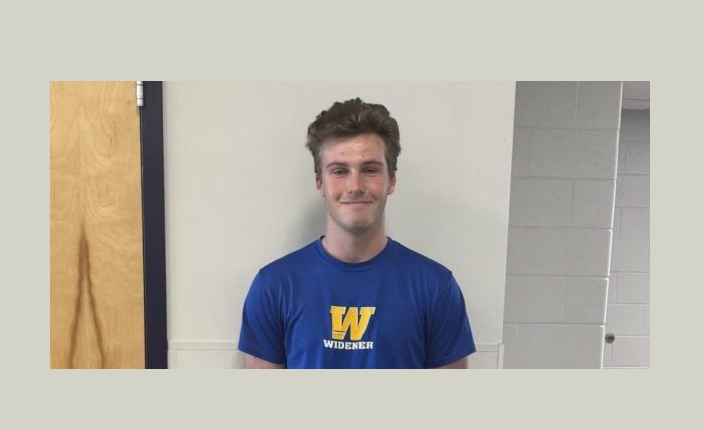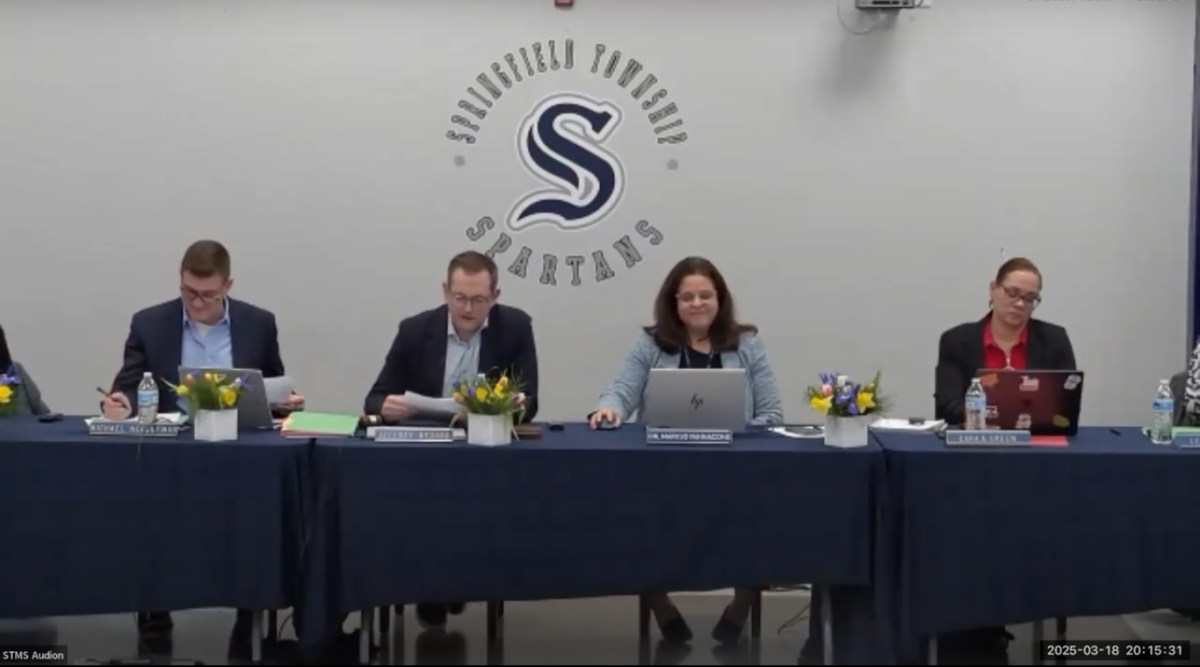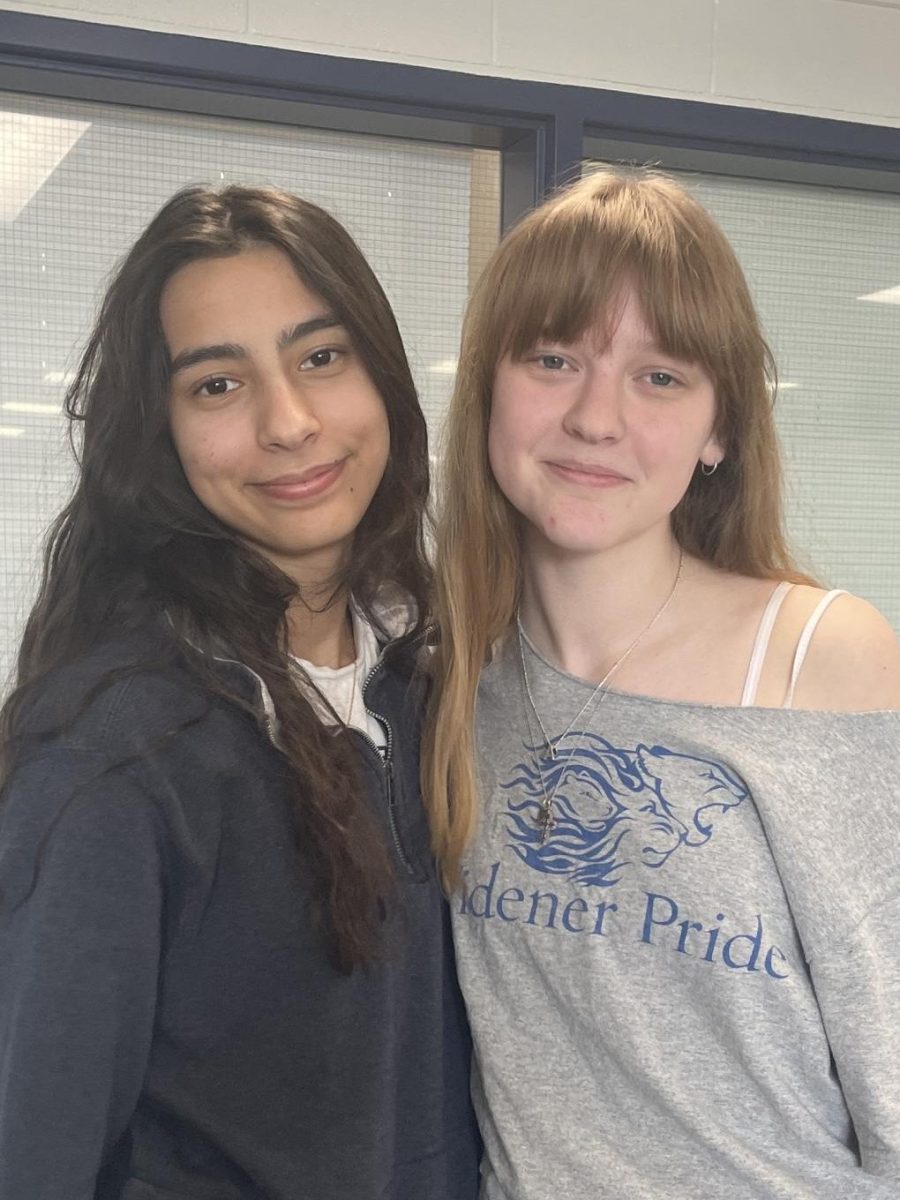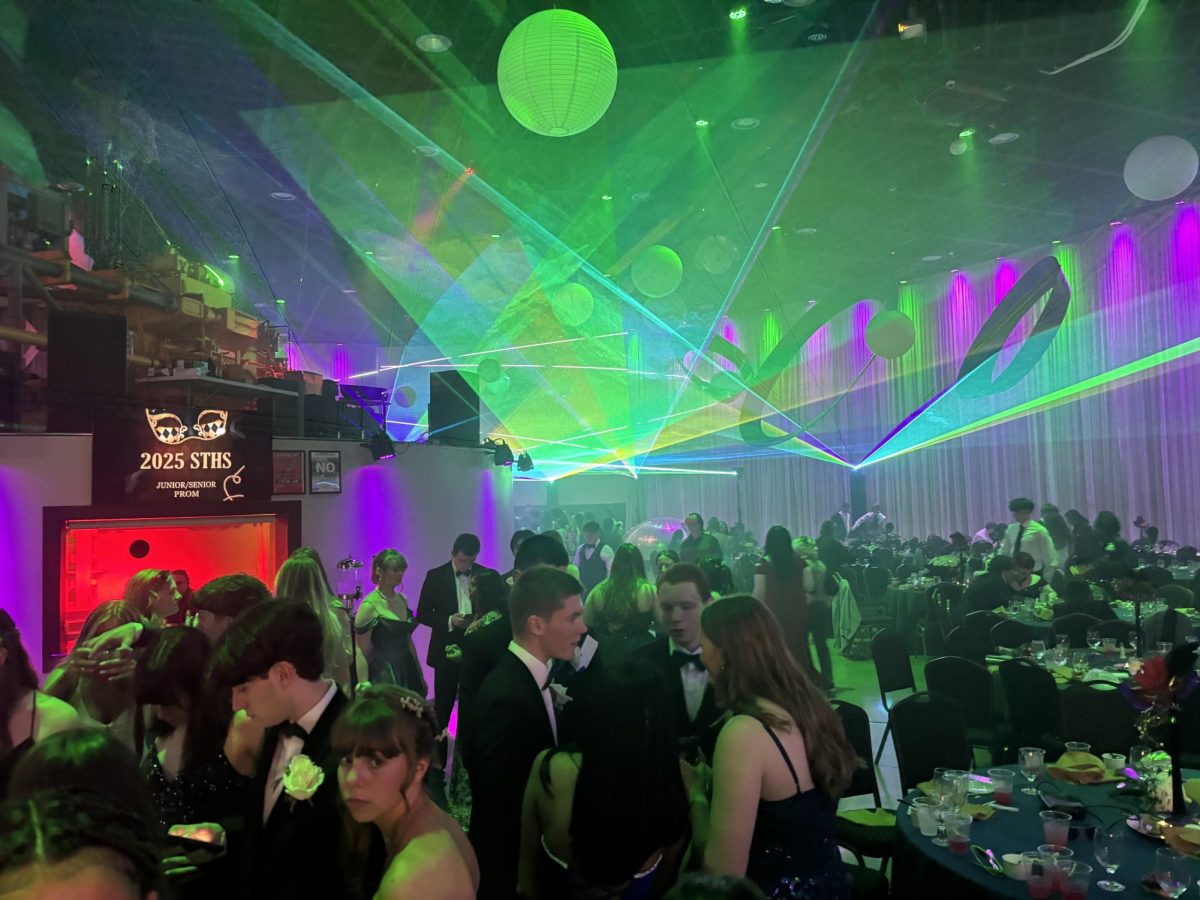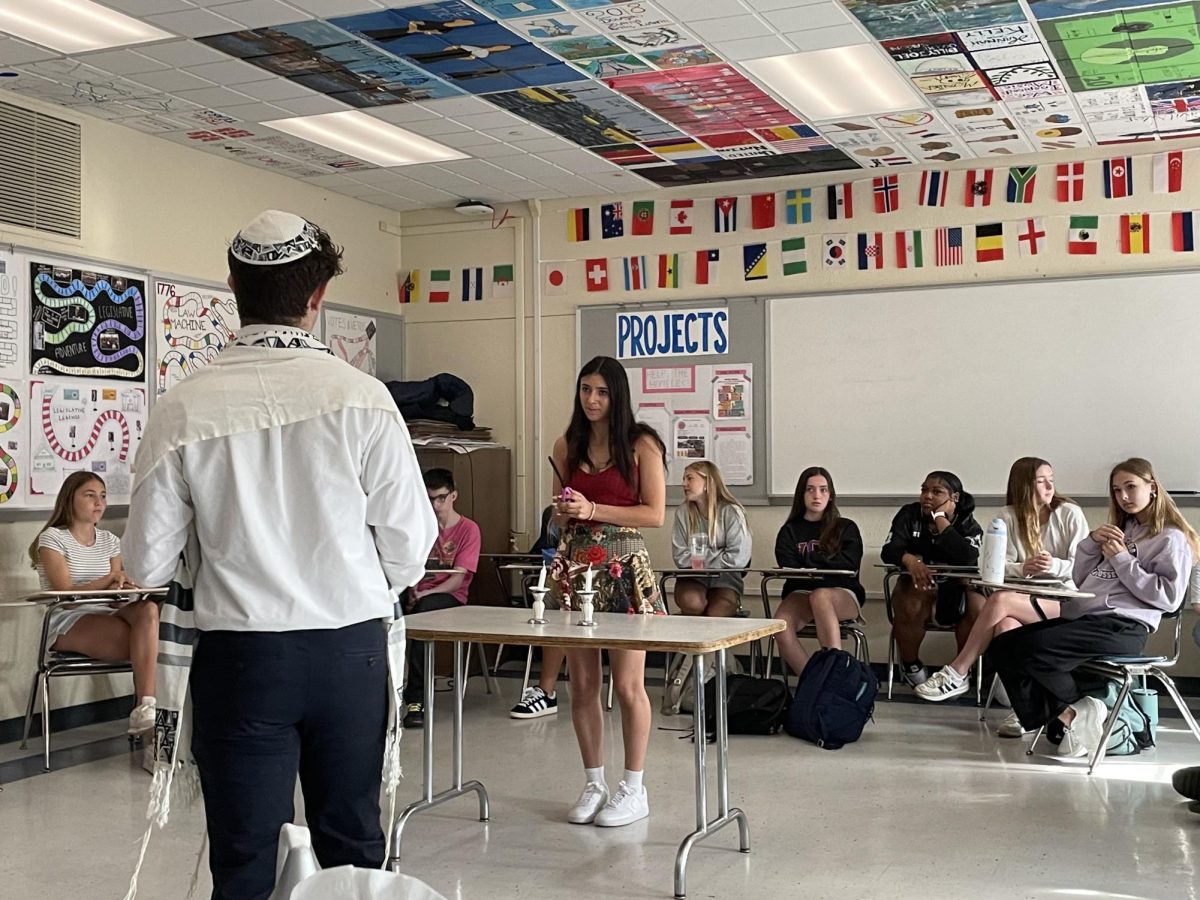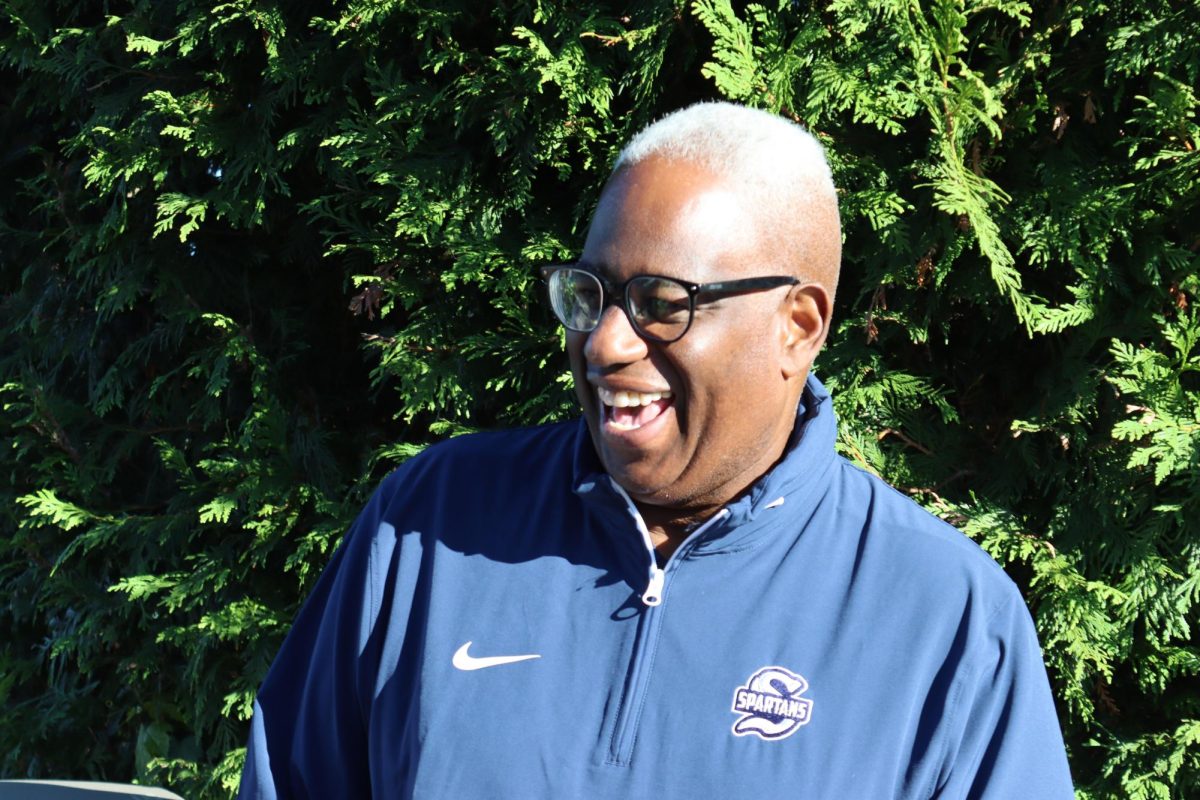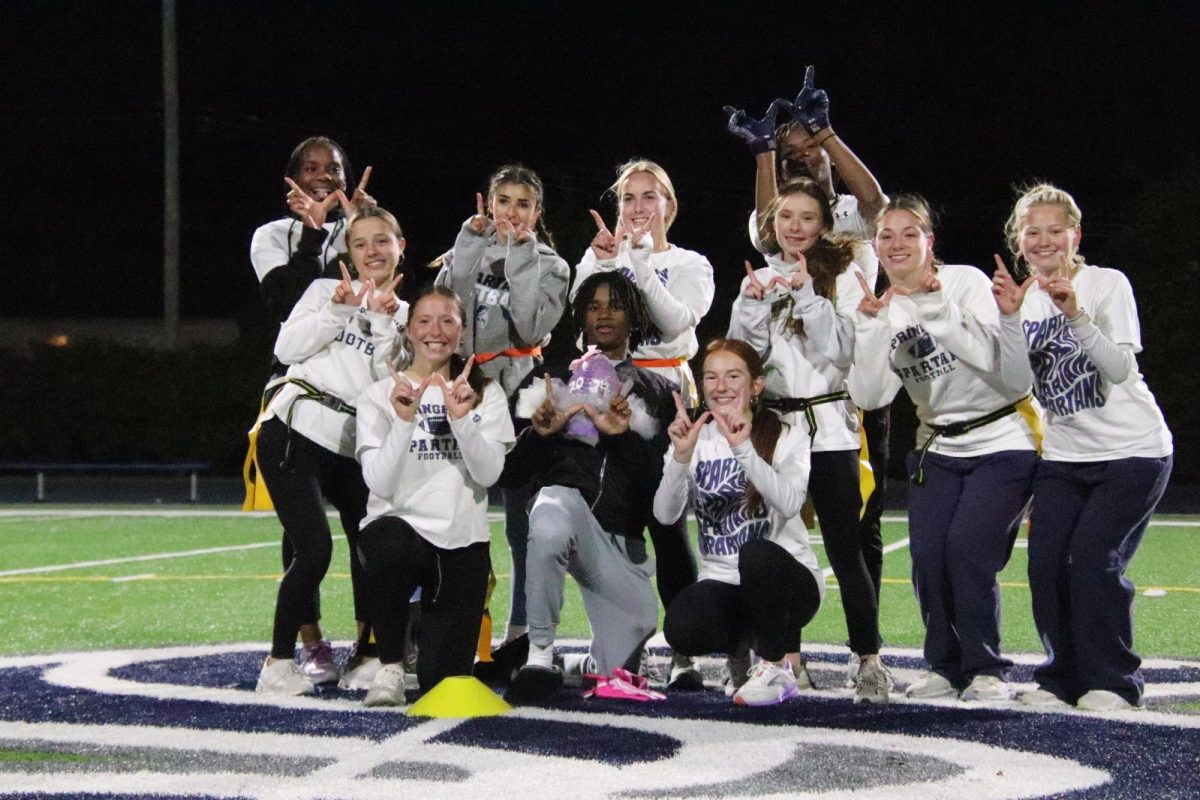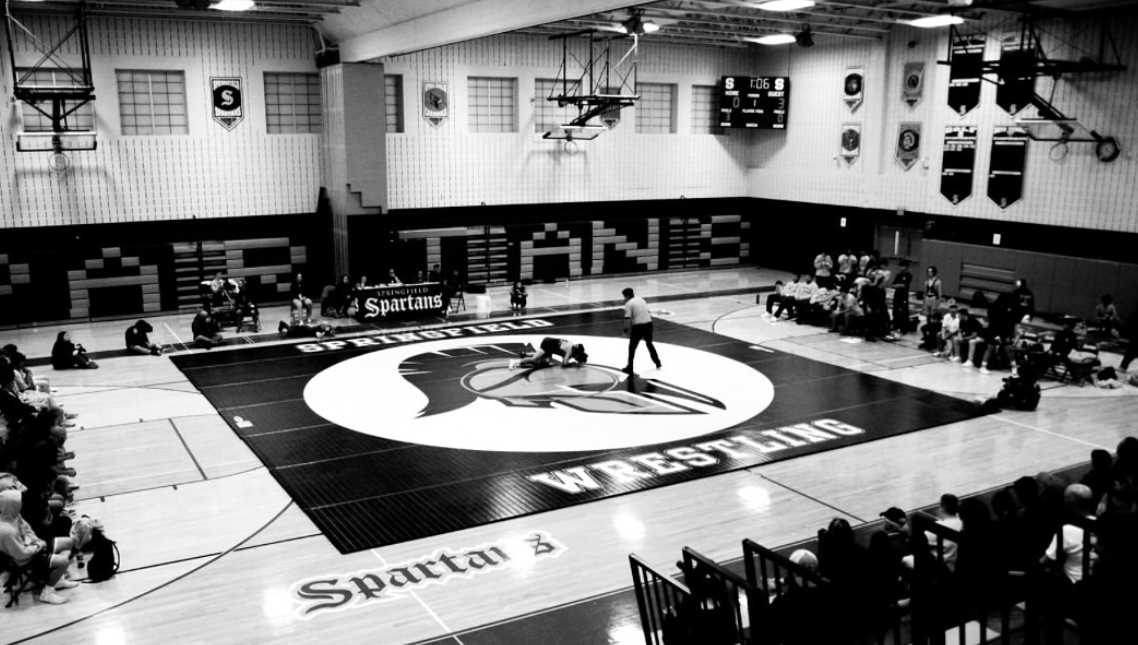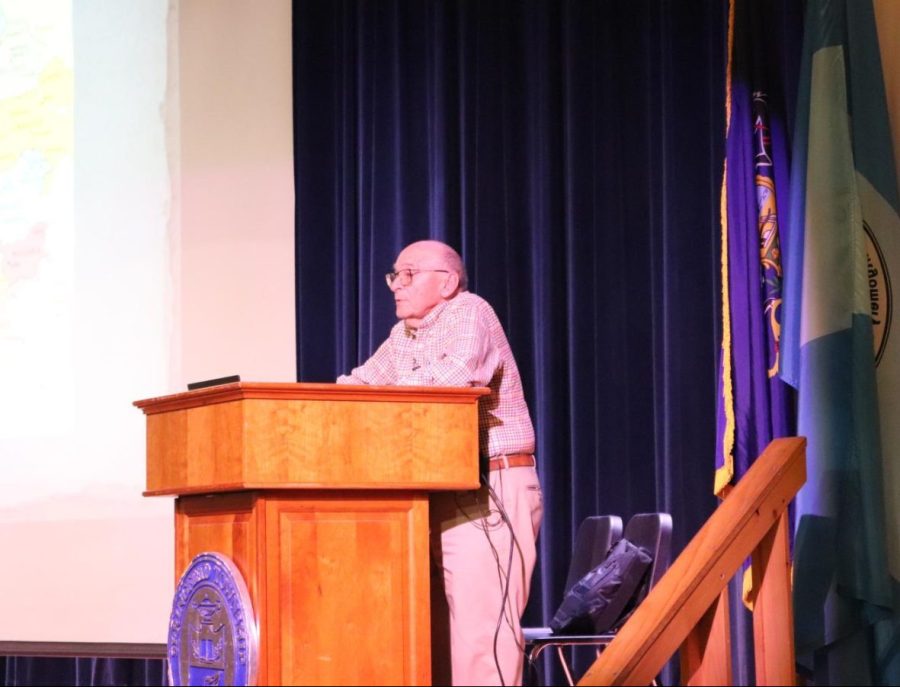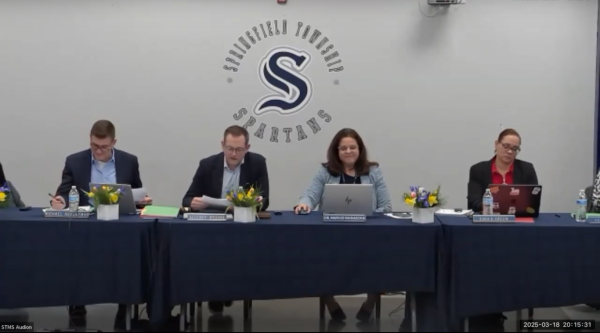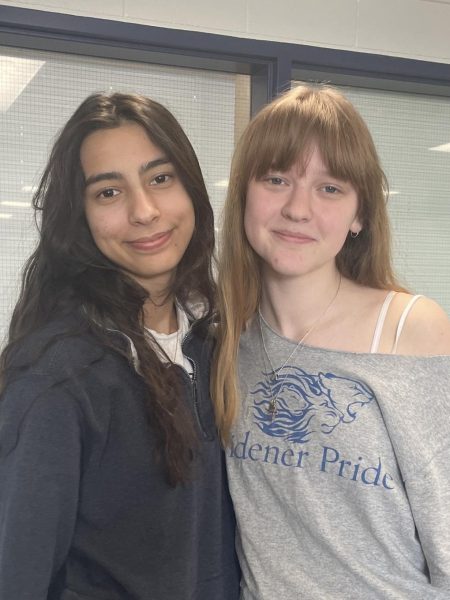Holocaust Survivor Speaks at STHS
As our country has seen a rise in antisemitism through some of our most followed leaders and the common person, these hateful and hurtful ideas have come into our own community and school. When these comments and ideas began growing in our community, our school decided to combat these issues through education. The Jewish Affinity Group, created earlier this year, decided to bring in the Holocaust survivor Peter Stern who experienced the Holocaust as a young child and shared his experiences.
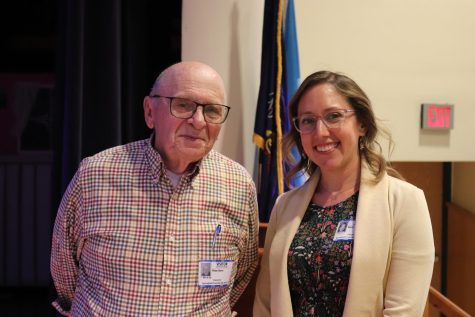
Ari Schwartzman explains the reason for the visit, “the first step in combating hatred is building awareness that the hatred is there.” In this situation, the visit provided a lesson on the history of antisemitism and its dangers in the most extreme form.
According to Dr. Rittenhouse, he talked about our school wanting to do a Holocaust-related program before the pandemic. This year when multiple families reached out to him about having that program, Dr. Rittenhouse reached out to Rabbi Roni Handler to pursue it. Dr. Rittenhouse hopes that the visit helped students reflect on the past as “we want to study the lessons of the past to not make that mistake in the future…for us to hear his story and to reflect on the lessons that he gave us, never forget, be resilient… all those things are good lessons for kids.”
Likewise, Schwartzman talks about how bringing a speaker to the school will help individuals realize the harm and pain language and actions can bring, saying that they realized in the meeting that “having a speaker to show the level of horror of the Holocaust might bring some light to the fact that what they’re doing isn’t just making fun of people, it has real consequences in the real world.”
Student Take Away
Many students reflected on the conditions Mr. Peter Stern had to face. Anna Hyland, a junior, at Springfield, puts the reality of the situation into words: “Our history focuses a lot on death camps, which is very important, but there are so many ways to be a victim of the holocaust.” Similarly, one of the organizers, junior, Zayne Kolodner commented that every survivor had such different experiences varying based on the part of Europe and numerous other factors.
Something that stood out to many was the number of places Mr. Stern had to move to during the Holocaust, especially as a child barely under age 10. Many people wondered how, as such a young child, he endured these conditions. As Mr. Stern spoke, it seemed that he had accepted it as a part of his life while at the same time working to educate audiences about the Holocaust.
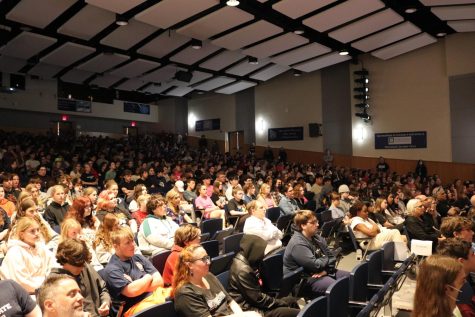
When people have the privilege of access to a primary source, education is vital, and Springfield students agree. Most students think that hearing someone discuss their experience during the Holocaust—as opposed to reading about it—is beneficial. Schwartzman is one of these students. He explains that people see the Holocaust as numbers. But, when you speak to a survivor, and they tell you how they felt in each moment, it helps you realize, as he said, “each of those 11 million people were people.” He elaborated on this, explaining that interaction humanizes the statistics. Schwartzman says he “feel(s) like that’s not something a book, letter, or video can get across.” Bryn McGhiey had a similar point: having a discussion is more sincere than paper and emphasized the importance of talking to Holocaust survivors while we’re still able to.
Having a Holocaust speaker come and talk about his experiences will stick with students for a lifetime. When we come to a time when there are no more Holocaust survivors and no one to speak of their first-hand experience, we will have to remember what happened. We have to remember now, and we have to remember later. If you weren’t able to attend the presentation, the entire visit was recorded and attached below.
Your donation will support the student journalists of Springfield Township High School. Your contribution will allow us to purchase equipment and cover our annual website hosting costs.

